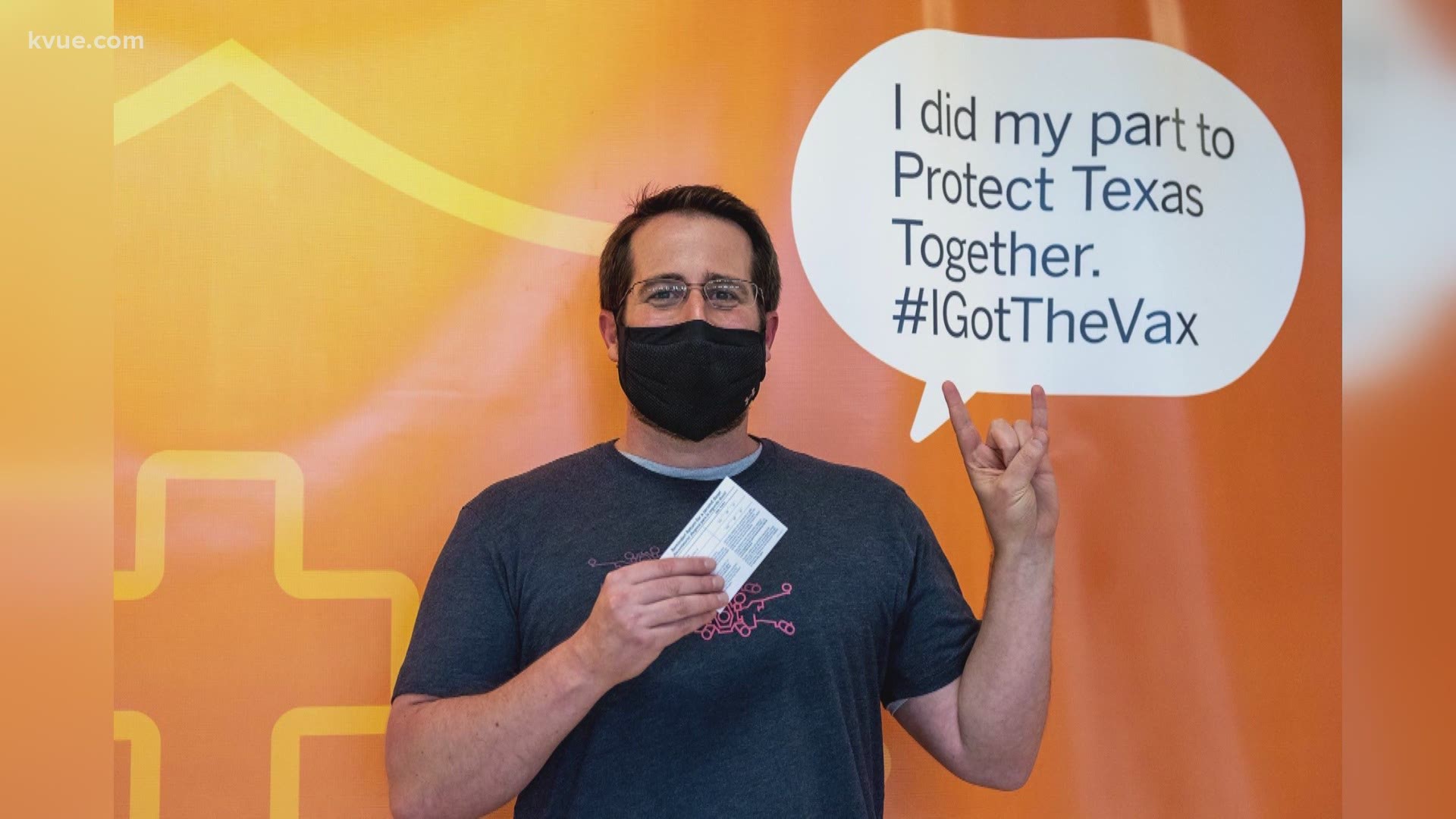AUSTIN, Texas — A vaccine that recently entered human trials in Vietnam and Thailand and is slated for a clinical study in Brazil could prove key to boosting global vaccination efforts through affordable vaccine manufacturing in countries currently dependent on imported vaccines.
The vaccine, NDV-HXP-S, is the result of a partnership between the University of Texas at Austin, the Icahn School of Medicine at Mount Sinai in New York and global partners, according to UT.
The vaccine can be stored at 2 to 8 degrees Celsius and is made in eggs, a method also used for flu vaccine manufacturing, meaning the manufacturing capacity already exists in the countries involved with trials. The vaccine uses a highly stabilized spike coronavirus protein, HexaPro, which was engineered by three faculty labs at UT. Hexapro was found in earlier research to be promising for use in robust vaccines, UT said.
Other COVID-19 vaccines also use stabilized proteins, but NDV-HXP-S is HexaPro's first use in a vaccine in human trials.
"My team and I are thrilled that our second-generation stabilized spike protein is part of this vaccine," said Jason McLellan, an associate professor of molecular biosciences who co-developed HexaPro, having previously helped develop the spike protein in use in all of the COVID-19 vaccines U.S. residents are receiving. "Our hope is that the vaccine will be safe, efficacious and affordable, allowing more people around the world to have protection against COVID-19."
NDV-HXP-S is produced using the same method that has been used for flu vaccines since the 1950s. According to UT, it is a faster, cheaper and less complicated method than those used to produce several leading COVID-19 vaccines. The vaccine is also stable at regular refrigerator temperatures (2-8 degrees Celsius) for weeks, unlike leading mRNA vaccines, which need a much lower temperature.
"We are witnessing unprecedented disparities in COVID-19 vaccine access around the world," said Ilya Finkelstein, an associate professor in the Department of Molecular Biosciences and a collaborator on the technology. "We designed HexaPro to be a more stable antigen. In cell culture, this translated to a more than tenfold increased yield relative to the first-generation spike constructs used in current vaccines. If this holds for NDV-HXP-S, HexaPro will bring us a step closer towards addressing the wide disparity in vaccine access."
PEOPLE ARE ALSO READING:

